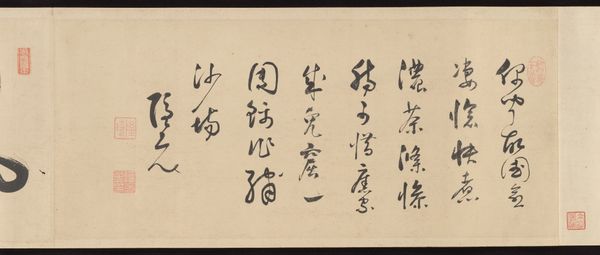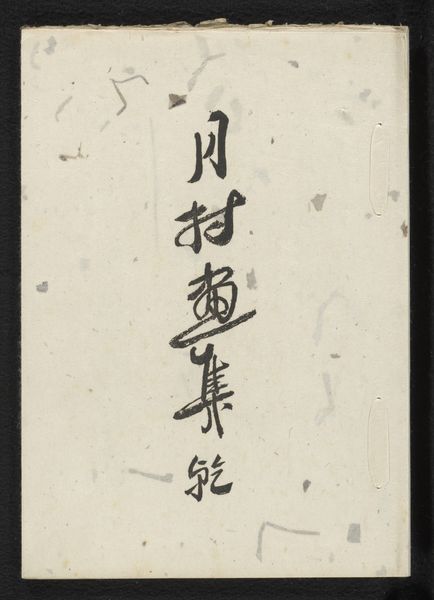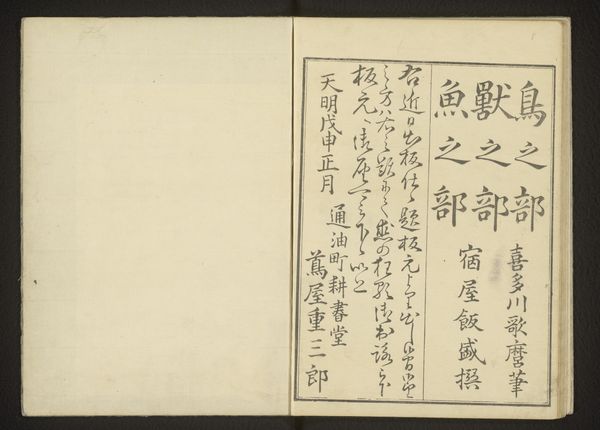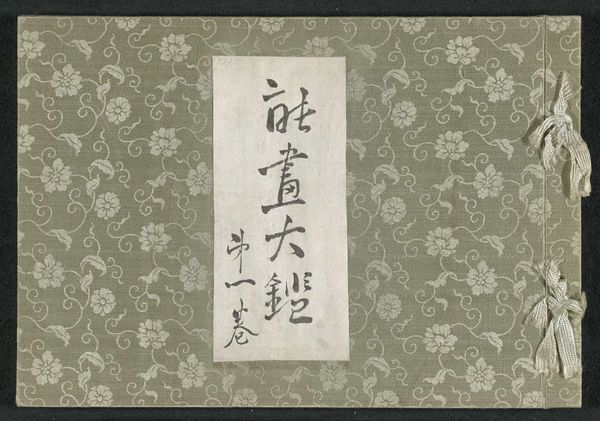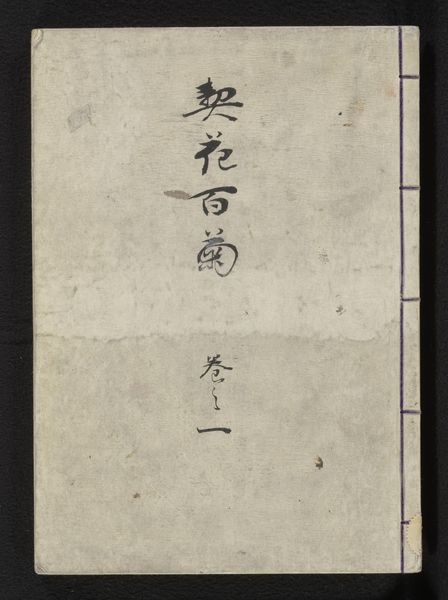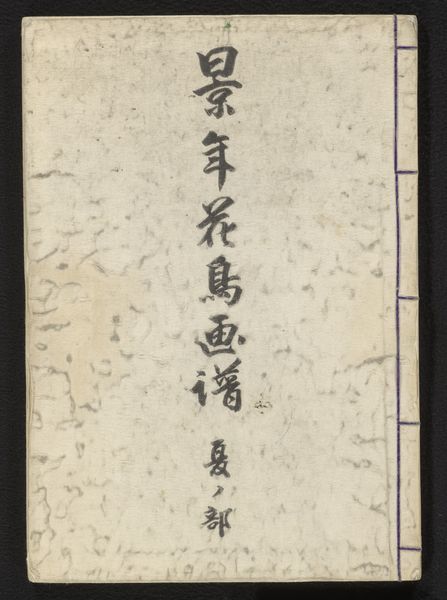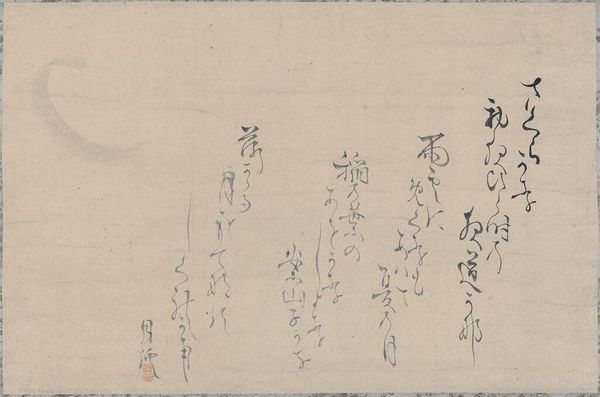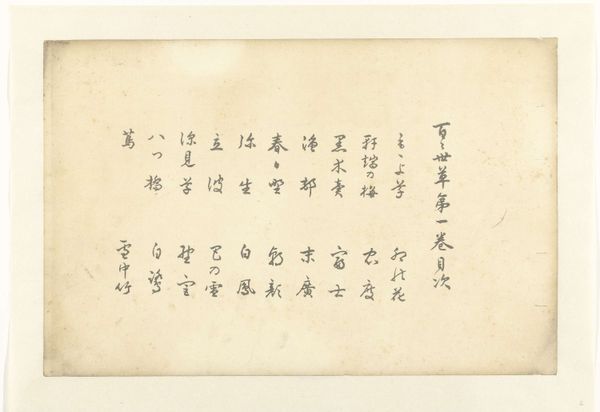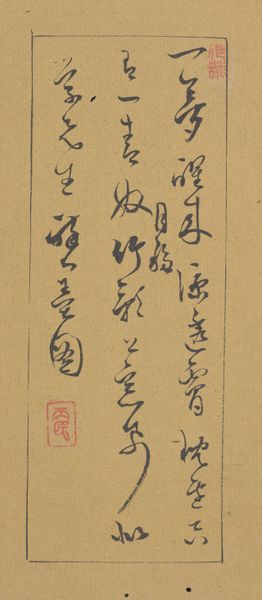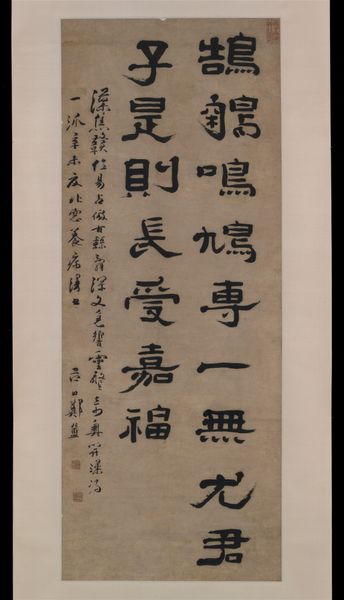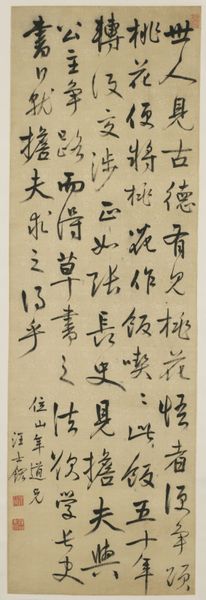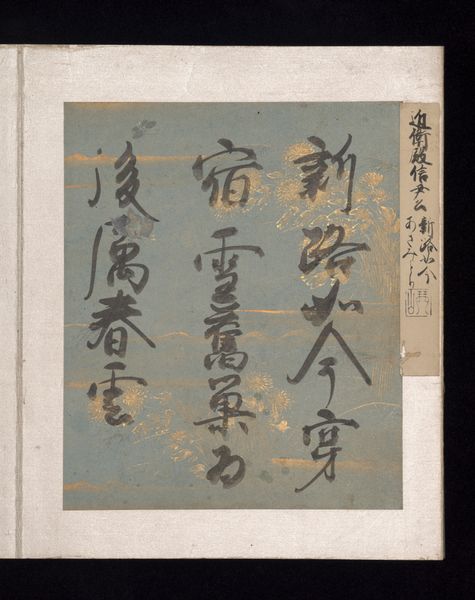
#
script typography
#
incomplete sketchy
#
hand drawn type
#
personal sketchbook
#
hand-drawn typeface
#
fading type
#
ink colored
#
thick font
#
sketchbook drawing
#
sketchbook art
Dimensions: height 202 mm, width 287 mm
Copyright: Rijks Museum: Open Domain
Editor: Here we have "A Collection of Haiga" by Okamoto Gesson, created in 1934. It looks like it is created with ink. The composition is dominated by text, giving off a very minimalist vibe. What is your interpretation of this work? Curator: Well, looking at this work, it's critical to understand "haiga" as more than just visual art. These are poems married with images, often referencing nature and everyday life. Gesson, active during a period of intense social change in Japan, might be using this form to express subtle critiques or quiet observations about the human condition within that changing landscape. Do you see how the text dominates? Editor: I do, and it feels like the sketchiness, or the incomplete quality, is important, too. Like a personal note. Curator: Exactly! Think of the rise of personal expression against a backdrop of increasingly nationalistic art. This feels almost subversive in its intimacy. Consider too, who had access to create and share art, whose voices were amplified, and whose were muted. This artwork is a moment for reflection. Does that change how you see it? Editor: It does. The "sketchiness" now feels more deliberate. The personal and potentially political nature of simple expression gives me a whole new perspective. Curator: I think that the tension between individual expression and social context is a powerful element within the work. Editor: Absolutely, it’s fascinating to consider the haiga as both personal reflection and a quiet act of cultural commentary. Thank you!
Comments
No comments
Be the first to comment and join the conversation on the ultimate creative platform.

